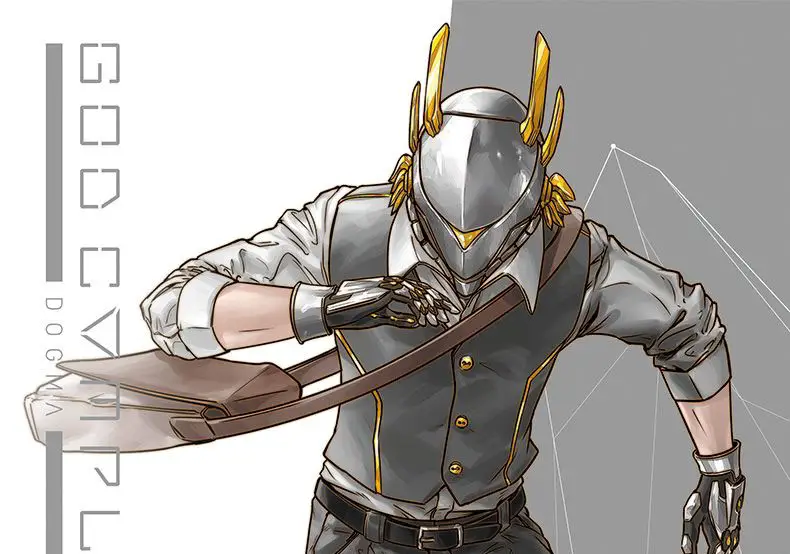[amazon_link asins=’B07BX19V5X’ template=’AiPTProductAd’ store=’aiptcomics-20′ marketplace=’US’ link_id=’b0fdff62-8938-11e8-9e71-d5d8d1abd5f3′]
Last year saw a resurgence of all things cyberpunk: there was the Hollywood live-action adaptation of Ghost in the Shell, Duncan Jones’ Netflix failure Mute and the masterpiece (despite being a box office disappointment) Blade Runner 2049. As for the literary world, William Gibson – one of the pioneers of the subgenre with his 1984 novel Neuromancer – has made a name for himself in the comics scene, and during the end of 2017, a new title from Image Comics made its debut called God Complex, which has just released its initial trade paperback.
In the futuristic city of Delphi, a young digital-forensics investigator named Seneca is assigned to investigate the bizarre murders of three acolytes from the Trinity Church. Guided by his cryptic mentor, the Ruler named Hermes, Seneca uncovers a conspiracy that worries the Rulers as it involves the resistance and the Church, and promises to shake up his life.
Despite my enthusiasm toward cyberpunk, there are so many tropes within the subgenre that have been overused to the point of cliché, so how do you approach them in a fresh way that gives the story more than just a shiny surface? Originally conceived by Bryan Lie, who came up with the designs of the Rulers, one can see why that the world-building comes first to the storytelling in God Complex, and the city of Delphi is a stunner. Illustrated by Hendry Prasetya, Delphi feels both retro and high-tech with a mixture of heavy rain and neon lights, while every issue presents a new layer of the city.

In terms of substance, there are very strong ideas in how this city is ruled by the corporations that are led by the Rulers, well-suited man-shaped machines that are maintaining the law, as evidenced in some of the panels featuring the tallest building known as Argus Heights, which has a giant face that gazes upon Delphi. Considering the Rulers are named after Apollo and Hermes, this sci-fi world taps into Greek mythology with numerous machines depicted as gods, which is an interesting contrast to the techno-phobic religious church that is seen as a threat by the technologically-advanced Rulers.
[amazon_link asins=’B07BX19V5X’ template=’BottomAdAIPT’ store=’aiptcomics-20′ marketplace=’US’ link_id=’3a205a38-8939-11e8-bffb-5108010b78f2′]
Despite those ideas, the storytelling scripted by Paul Jenkins is somewhat problematic as it’s very heavy on exposition and lacking in action. As for the human element that is at the center of the story, you feel distant towards Seneca, who spends a lot of the time talking to his own conscious and doesn’t do much other than what he’s been told to do by his superiors. It’s only halfway through the volume when things go all Robocop and the protagonist starts to follow his own fate — that will be interesting to see when the series continues.
The Verdict
Presenting a different light toward a lot of cyberpunk tropes, God Complex is an enjoyable read. Despite the lack of human spark, it’s a visual delight that is beautifully rendered by artist Hendry Prasetya.
Join the AIPT Patreon
Want to take our relationship to the next level? Become a patron today to gain access to exclusive perks, such as:
- ❌ Remove all ads on the website
- 💬 Join our Discord community, where we chat about the latest news and releases from everything we cover on AIPT
- 📗 Access to our monthly book club
- 📦 Get a physical trade paperback shipped to you every month
- 💥 And more!















You must be logged in to post a comment.